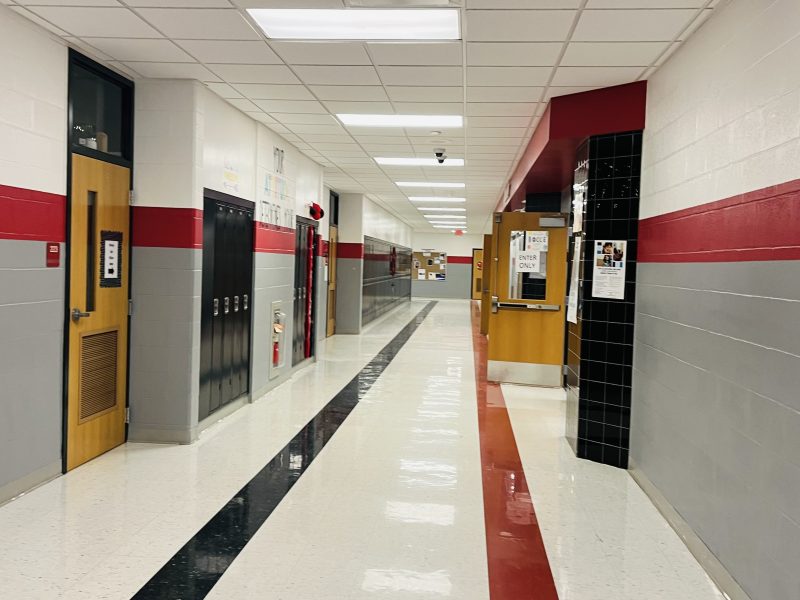CLEARFIELD – Following a lengthy debate Monday night, the Clearfield school board voted to approve changes to the program of studies for 2024-25 at the junior-senior high school.
The goal—according to a previous presentation by Director of Curriculum Dave Domico—is to address the students’ Algebra scores. “Studies say Algebra 1 is the vital math” that readies students for college and beyond.
“Our focus needs to [shift] so it’s on their preparation for Algebra 1, and not rushing our kids into more advanced math courses.”
The “strongest recommendation” included a “tweak” in the graduation requirements. Students will still complete four math credits including Algebra 1 and Geometry but instead of having an Algebra 2 requirement, it will just be “an additional Algebra course” like College or Financial Algebra.
“It’s more appropriate for some student pathways,” Domico explained, especially for those who have been struggling with Algebra over the years. “We want our kids to take courses that are more useful to them.”
Next seventh- and eighth-grade math and science will continue to consist of a three-period block as it has for the past several years but will offer more flexibility.
Currently students spend a period-and-a-half in each course, but this has hindered the ability of students to schedule intervention time, Domico said.
Next year program plans will allow for the period in between math and science to become an intervention time.
That way if they need more math time, if they need more science time, it’s available to them, Domico said. It can also be used for other academic purposes like study skills or homework organization, which are also “very much needed” at the seventh- and eighth-grade level.
Students will be placed in a recommended math course based on a rubric of academic performance, PSSA scores, teacher recommendations and math growth measures.
Lastly, Domico said that all seventh-grade students take a Pre-Algebra course. But, for any student who intends to take Algebra as an eighth-grader, they will have an accelerated option combining seventh- and eighth-grade math standards.
Prior to board action on Education & Personnel items, board member Gail Ralston requested a separate roll call vote on the program of studies.
She indicated she had some serious concerns that required further board discussion with the school’s administration, and hoped the board would postpone its vote.
Ralston was happy to see that intervention times were being built into the seventh- and eighth-grade student schedules but also thought they should be built into student schedules in grades 9-12.
Domico said intervention time has been a missing component in the seventh- and eighth-grade schedules, which prompted this change to have it built in.
In grades 9-12, he said students have the option to build in a study hall period, which can also be utilized as intervention time. But, he said it’s not scheduled for all students and mainly just for those students who need the extra help.
Junior Student Representative Zoie Sidorick said she’s “never” had a study hall, but at the same time, she’s never felt as though she’s needed one despite her busy schedule.
She saw this as a scheduling decision that students should make with staff advisement. Those needing intervention are already able to schedule a study hall, she said, adding if it were built in for all students 9-12, it could be an ineffective use of a class period for many.
At various points of the discussion, board members asked if it were possible to postpone action and schedule an informational or special meeting, but high school administration indicated that would really hinder their ability to start work on next year’s student schedules by mid-March.
Domico agreed that more work was still needed to improve student schedules in grades 9-12, but that was a “scheduling” issue, and the board was only considering course offerings and descriptions.
He said further changes could still be discussed and implemented even after board approval of the program of studies.
“It’s not like this has to be a one and done.”
Superintendent Terry Struble compared the program of studies to a restaurant menu, saying it was a list of course options available to students, and not their daily schedule, which remains to be determined.
Because Ralston wanted the assurance students in grades 9-12 would not be forgotten in the process and actually received needed remediation time, she motioned for the board to table action. Her motion died for lack of second.
The board’s subsequent vote for approval passed, 8-1, with Ralston as the only opposing vote.
Struble did say after the meeting that the administration would continue discussions with board members regarding their course/schedule concerns, and if any changes would arise, they would be brought before the full board for consideration.
